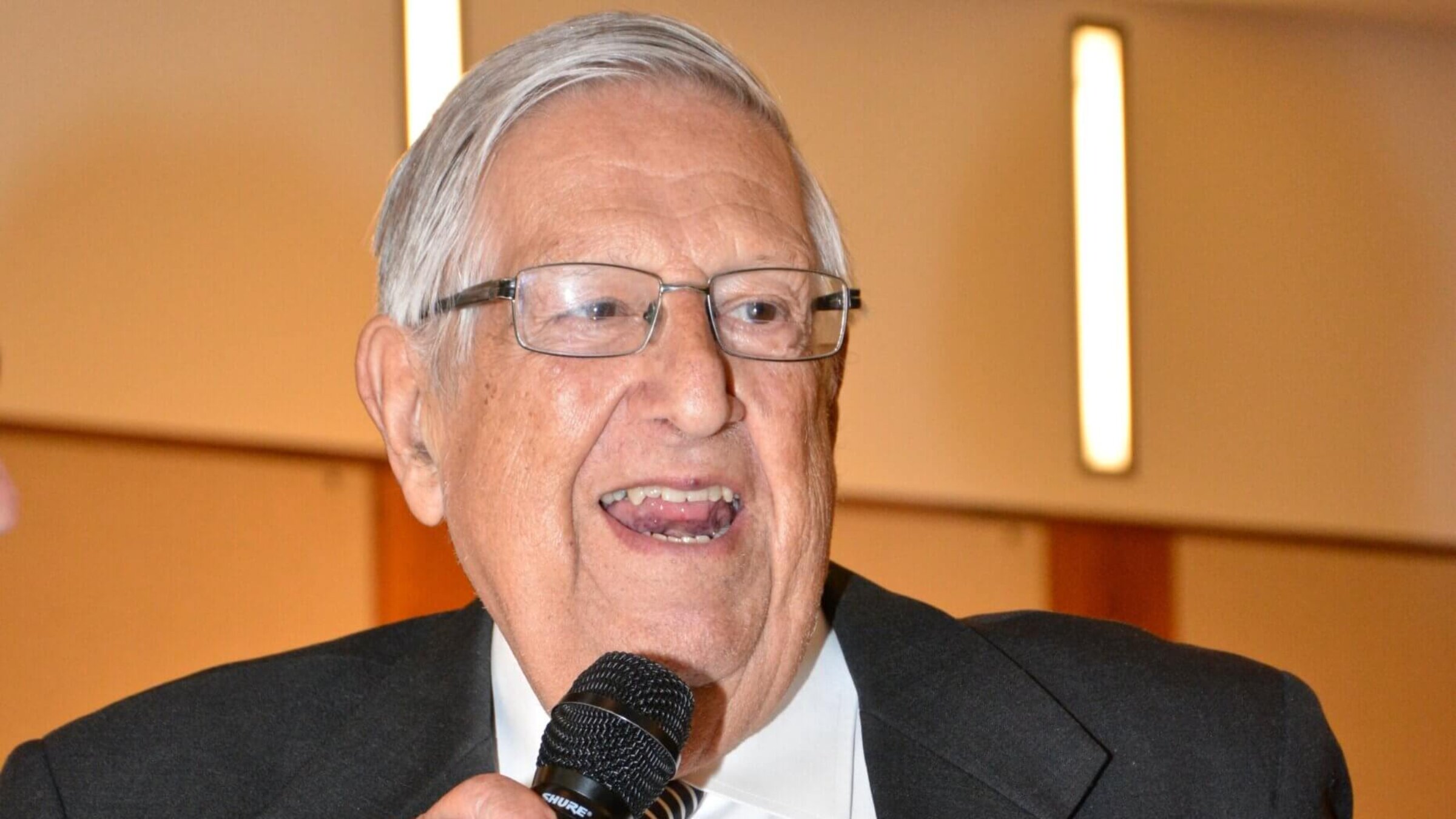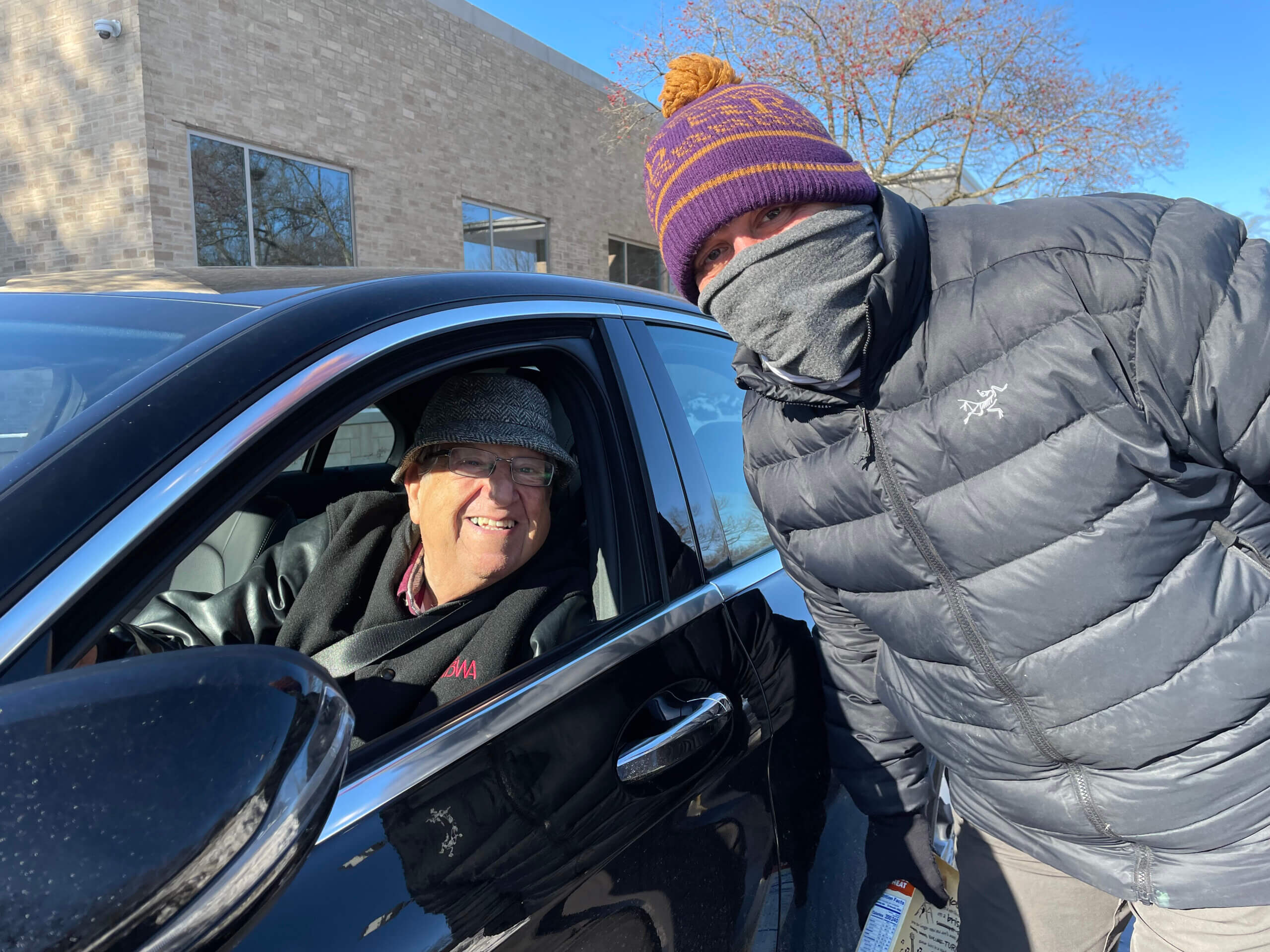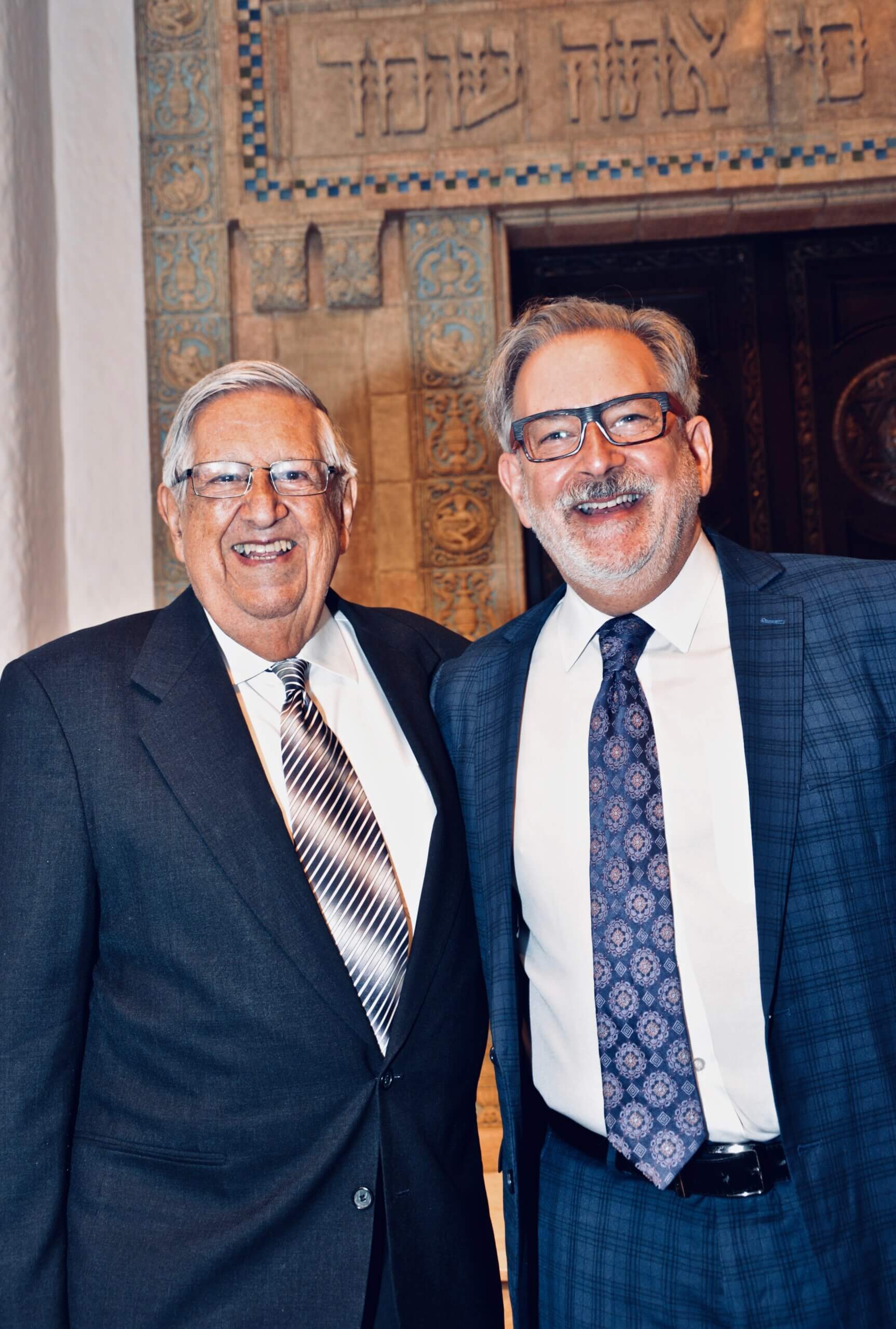At 90, a rabbi revisits the work he did as part of underground clergy abortion network
Botched abortions, secret files in Hebrew, and a prison-inspired conversion to support women’s right to choose.

Rabbi Harold Kudan, 90, worked for years in an underground network of clergy who helped women access abortions. Courtesy of Harold Kudan
Like many American Jews, Rabbi Harold Kudan is angry about the Supreme Court’s expected ruling undoing the constitutional right to an abortion. But for Kudan, 90, the leak of the draft decision that would overturn Roe v. Wade brought back vivid memories of his years helping women obtain illegal abortions as part of an underground clergy network.
There was, for example, the middle-aged widow and principal of a Catholic school who beseeched him: “I can’t have a child. It will be the end of my career.”
There was the low-income woman with six kids who confided, “I’ll kill myself if I have another.”
And there was the young congregant at his own synagogue in suburban Chicago, a college student afraid to tell her parents. “She thought they’d kill her,” Kudan recalled. “No, I know your parents,” he told her, “and I’m sure they’ll support you.”
Kudan was a member of Clergy Consultation Services, a network of some 1,400 to 2,000 rabbis, ministers and even a few Catholic priests across 38 states that operated for six years. These clerics pooled their local and national connections to develop a roster of doctors willing to perform abortions despite the legal risks, helped negotiate lower fees for the services, and then instructed the women on where to go — usually out of state — and how to connect with the physicians once there.
“It all came back to me,” Kudan said during a recent phone interview from his home in Glencoe, Illinois. Now he thinks that reviving that underground clergy network “might well be necessary,” and that the Reform movement’s Central Conference of American Rabbis “should start working on this” in anticipation of the Supreme Court ruling this month.
“Wherever we are, we must help women who are in states where they can’t get an abortion get to where they can obtain one,” Kudan continued. “We can’t stop the fight; we have to fight!”
‘Rabbis for Repro’
The next generation of rabbis is engaged in the fight in different ways. More than 1,000 of them — including the leaders of the Reform and Conservative movements — have joined Rabbis for Repro, a group formed in 2020 that lobbies lawmakers and convenes “Repro Shabbats” in their shuls.
They and other Jewish supporters of abortion rights — an estimated 83% of Jewish Americans believe it should be legal in all or most cases — have grown more active since the draft ruling overturning Roe became public. More than 1,500 people turned out for a Jewish rally for abortion rights in Washington in May.
Long before the leaked court ruling, Rabbi Mara Nathan of San Antonio began plotting for a post-Roe future in which the country might become a patchwork of states with differing laws regarding abortion, from outright bans to full access. “I would find the funds to get them out of Texas and get what they needed,” Nathan said in a 2021 interview. “And I also know we have allies in the congregation who would help.”
With a new Texas law empowering ordinary citizens to seek hefty bounties from anyone aiding a woman in getting an abortion, Rabbi Nathan and her colleagues could face risks not unlike Kudan and the others involved in the pre-Roe clergy network more than a half-century ago.
Founded in 1967 at Judson Memorial Church in Greenwich Village, the Clergy Consultation Service was inspired by and, in many cases, drew its members from clergy who had been involved in the civil rights movement, according to Sabrina Danielson, a professor of sociology at Creighton University who did her dissertation on the group in 2014. Kudan himself had marched in Selma in the early 1960s with Rev. Martin Luther King Jr.

The Chicago chapter, of which Rabbi Kudan was a member, saw 10,000 women between 1969 and 1973, when Roe made abortion legal, according to the chapter’s chairman, the Rev. E. Spencer Parsons of the University of Chicago. He said he created the group after reading a 1969 Chicago newspaper article reporting that thousands of women each year were turning up at Cook County Hospital with complications from botched abortions.
Kudan was at the time assistant rabbi at North Shore Congregation Israel in Glencoe, a tony Chicago suburb on the shores of Lake Michigan. He said it was a Church of Christ minister from the nearby suburb of Wilmette who urged him to join the group.
“I respected him a lot,” said Kudan. “So I thought about it, and after some conversation, I realized how important it was.”
‘An act of rachmanis’
Kudan, who grew up in an Orthodox family in the Adirondacks, said he staunchly opposed abortion until he was about 30 years old. He began to reconsider in the early 1960s, when he was a volunteer prison chaplain in Illinois and met a woman serving time for performing abortions. Her accounts of the circumstances faced by the pregnant women she saw shook him.
“It was the first time I saw it as an act of rachmanis,” Kudan recalled, using the Hebrew term for mercy. “She felt she was doing something to help others. She wasn’t doing it for the money.”
Years later, when he joined the clergy network, he found that the work often went beyond just connecting women with doctors. It included pastoral care, too.
Prior to the Catholic school principal’s procedure, for example, Kudan said he arranged for her to see a sympathetic priest. “It was to let her know that what she was doing was not wrong,” he said. “She didn’t imagine the priest would be supportive. I knew he would. He was active in our group.”
Kudan said that almost all the women who came to see him were in the early stage of their pregnancies. With a few exceptions, they were white and middle class to upper middle class, reflecting the area where he lived.
Most, like the young college student who worried about her parents and the Catholic school principal who worried about her reputation, seemed desperate. Those were easy, Kudan said. Others, who at first glance seemed merely inconvenienced by their pregnancies, the rabbi found more morally complicated.
“There was one couple who said that their lifestyle, which included a lot of traveling, was such that they didn’t really want a child,” he recalled. He told the couple that he could not help them that day, and asked them to return a few days later. In the interim, the rabbi looked inward.
“I thought about it and decided that it’s not my decision to decide what’s right and what’s wrong,” he said. “Perhaps if they didn’t want a child, it would be best if they didn’t have one. That’s almost the crux of it. Women have a right to their own bodies.”
Risks and consequences
During the years he was involved in the clergy network, another member, Rabbi Max Ticktin, who ran the Hillel at the University of Chicago, was arrested for setting up an abortion in Michigan. The woman who had come to Ticktin for help turned out to be an undercover cop.
The Chicago police, working in coordination with Michigan law enforcement, executed a search warrant on Ticktin’s home, where they found a trove of files they hoped would lead them to other clergy in the network. But Ticktin, who died in 2016, was apparently prepared for such a raid.
“He did all his files in Hebrew,” recalled Rabbi Lawrence Kushner, another member of the Chicago network. “He joked about that. His files were all written in Hebrew. That made them useless unless the cops could read Hebrew cursive.”
The Chicago Board of Rabbis strongly protested Ticktin’s arrest as an attack on clergy confidentiality, as did numerous Christian and Jewish clergy in both Chicago and Detroit. The Michigan prosecutor ultimately dropped the charges, though he went forward against the Detroit doctor slated to perform the illegal abortion.
Kushner, 79, a noted author on Jewish mysticism who now lives in San Francisco, said in a recent interview that he was scared enough about the risks of helping women get illegal abortions that he carried a bail bond card in his wallet all the time.

Kudan said he did not recall feeling that way, and joked: “Maybe I thought I had enough lawyers in my congregation to not have to feel scared.”
Today, Kudan is rabbi emeritus of Am Shalom in Glencoe, which he himself founded in 1972 and served full-time for 30 years. It has more than 950 members.
Meanwhile, the Orthdox shul where he grew up in the upstate New York town of Glen Falls, he said, has become Conservative and is “hanging on by its fingernails.”
As a child in Glen Falls, Kudan recalled, he fell under the sway of Rabbi Kurt Metzger, a Holocaust survivor who led the only other synagogue in town, which was Reform. “He was a prison chaplain, so I became a prison chaplain,” Kudan recalled. “He taught me the right path.”
One of Kudan’s four children, David, followed the same path and is now a Reform rabbi in Peabody, Massachusetts.
Now in the winter of his life, Kudan did not seem disheartened at the prospect that the abortion rights for which he risked arrest and then saw enshrined as a constitutional right could soon be reversed.
Asked why, he invoked a famous King quote — with an addendum.
“The arc of history is long but bends towards justice,” he said, “and yes, sometimes it even bends backwards.”
The Forward is free to read, but it isn’t free to produce

I hope you appreciated this article. Before you go, I’d like to ask you to please support the Forward.
Now more than ever, American Jews need independent news they can trust, with reporting driven by truth, not ideology. We serve you, not any ideological agenda.
At a time when other newsrooms are closing or cutting back, the Forward has removed its paywall and invested additional resources to report on the ground from Israel and around the U.S. on the impact of the war, rising antisemitism and polarized discourse.
This is a great time to support independent Jewish journalism you rely on. Make a gift today!
— Rachel Fishman Feddersen, Publisher and CEO
Support our mission to tell the Jewish story fully and fairly.
Most Popular
- 1

Culture Cardinals are Catholic, not Jewish — so why do they all wear yarmulkes?
- 2

Fast Forward Ye debuts ‘Heil Hitler’ music video that includes a sample of a Hitler speech
- 3

News School Israel trip turns ‘terrifying’ for LA students attacked by Israeli teens
- 4

Fast Forward Student suspended for ‘F— the Jews’ video defends himself on antisemitic podcast
In Case You Missed It
-

Opinion This week proved it: Trump’s approach to antisemitism at Columbia is horribly ineffective
-

Yiddish קאָנצערט לכּבֿוד דעם ייִדישן שרײַבער און רעדאַקטאָר באָריס סאַנדלערConcert honoring Yiddish writer and editor Boris Sandler
דער בעל־שׂימחה האָט יאָרן לאַנג געדינט ווי דער רעדאַקטאָר פֿונעם ייִדישן פֿאָרווערטס.
-

Fast Forward Trump’s new pick for surgeon general blames the Nazis for pesticides on our food
-

Fast Forward Jewish feud over Trump escalates with open letter in The New York Times
-
Shop the Forward Store
100% of profits support our journalism
Republish This Story
Please read before republishing
We’re happy to make this story available to republish for free, unless it originated with JTA, Haaretz or another publication (as indicated on the article) and as long as you follow our guidelines.
You must comply with the following:
- Credit the Forward
- Retain our pixel
- Preserve our canonical link in Google search
- Add a noindex tag in Google search
See our full guidelines for more information, and this guide for detail about canonical URLs.
To republish, copy the HTML by clicking on the yellow button to the right; it includes our tracking pixel, all paragraph styles and hyperlinks, the author byline and credit to the Forward. It does not include images; to avoid copyright violations, you must add them manually, following our guidelines. Please email us at [email protected], subject line “republish,” with any questions or to let us know what stories you’re picking up.















